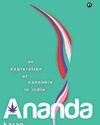
OF ALL OF HUMANITY’S assumptions about humanity, there is perhaps little that surpasses the prejudices the well-heeled have about the poor. Even when most admit to social inequities as the reason why the poor remain disadvantaged, there is often a litany of stereotypes that follow. But Sanjit ‘Bunker’ Roy is different, and so is the social experiment he has engineered in remote Tilona, Rajasthan—the Barefoot College.
Set up in 1972, Barefoot College has been working to provide the only known cure for the issues that plague the poor: empowerment, especially of women. With practice as pedagogy, the Barefoot college “is in the process of exploding many myths by setting an example,” as Roy puts it.
This is perhaps best illustrated by its Solar Mamas programme, where rural women are trained to build, install and maintain solar panels and batteries. After three to six months of training, they head back to their communities and implement the technology, bringing a reliable source of energy to remote villages and earning themselves a decent income. Many go on to train others in their own, and in neighbouring, villages.
One such trainer is 57-year-old Leela Devi, who bends over her workstation while carefully soldering a circuit board during our interview. Having studied only till class 3, she never believed she could do this job. “The beginning was difficult. I told them that I am not going to be able to do this,” she says. But starting from learning colour codes assigned to different circuit components, she learnt the names of the various tools and instruments.
Diese Geschichte stammt aus der October 2023-Ausgabe von Reader's Digest India.
Starten Sie Ihre 7-tägige kostenlose Testversion von Magzter GOLD, um auf Tausende kuratierte Premium-Storys sowie über 8.000 Zeitschriften und Zeitungen zuzugreifen.
Bereits Abonnent ? Anmelden
Diese Geschichte stammt aus der October 2023-Ausgabe von Reader's Digest India.
Starten Sie Ihre 7-tägige kostenlose Testversion von Magzter GOLD, um auf Tausende kuratierte Premium-Storys sowie über 8.000 Zeitschriften und Zeitungen zuzugreifen.
Bereits Abonnent? Anmelden

ME & MY SHELF
Siddharth Kapila is a lawyer turned writer whose writing has focussed on issues surrounding Hinduism. His debut book, Tripping Down the Ganga: A Son's Exploration of Faith (Speaking Tiger) traces his seven-year-long journey along India's holiest river and his explorations into the nature of faith among believers and skeptics alike.

EMBEDDED FROM NPR
For all its flaws and shortcomings, some of which have come under the spotlight in recent years, NPR makes some of the best hardcore journalistic podcasts ever.

ANURAG MINUS VERMA PODCAST
Interview podcasts live and die not just on the strengths of the interviewer but also the range of participating guests.

WE'RE NOT KIDDING WITH MEHDI & FRIENDS
Since his exit from MSNBC, star anchor and journalist Mehdi Hasan has gone on to found Zeteo, an all-new media startup focussing on both news and analysis.

Ananda: An Exploration of Cannabis in India by Karan Madhok (Aleph)
Karan Madhok's Ananda is a lively, three-dimensional exploration of India's past and present relationship with cannabis.

I'll Have it Here: Poems by Jeet Thayil, (Fourth Estate)
For over three decades now, Jeet Thayil has been one of India's pre-eminent Englishlanguage poets.

Orbital by Samantha Harvey (Penguin Random House India)
Samantha Harvey became the latest winner of the Booker Prize last month for Orbital, a short, sharp shock of a novel about a group of astronauts aboard the International Space Station for a long-term mission.

She Defied All the Odds
When doctors told the McCoombes that spina bifida would severely limit their daughter's life, they refused to listen. So did the little girl

DO YOU DARE?
Two Danish businesswomen want us to start eating insects. It's good for the environment, but can consumers get over the yuck factor?

Searching for Santa Claus
Santa lives at the North Pole, right? Don't say that to the people of Rovaniemi in northern Finland